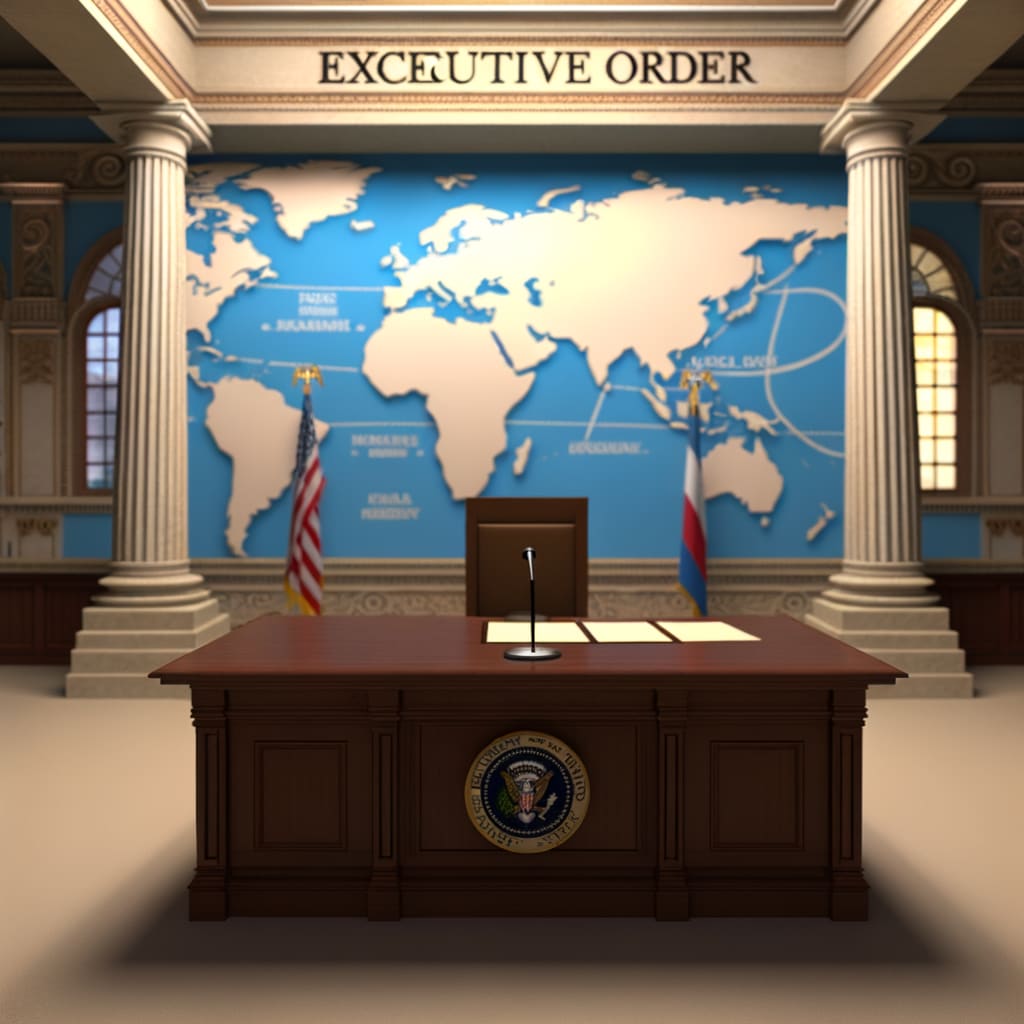Trump Designates Antifa as a 'Terrorist Organization'
US President Donald Trump has officially designated the Antifa movement as a domestic terrorist organization
following the assassination of conservative activist Charlie Kirk. The executive order was signed on Monday, September 17, according to multiple reports. The move has sparked global discussions and reactions, with Hungary's Foreign Minister Peter Szijjarto urging EU alignment with the US by labeling the anti-fascist group a 'grave threat'.
Background and Context
The Antifa movement, an umbrella term for far-left-leaning militant groups that resist fascists and neo-Nazis, has been declared a major terrorist organization
by President Trump. The executive order follows the killing of Charlie Kirk, a conservative activist, which Trump blamed on radical left violence
. This action revives a controversial pledge from his first presidency to target the anti-fascist movement, which was initially threatened in May 2020 following the Black Lives Matter-driven protests.
Key Developments and Details
In the executive order, Antifa is described as a militarist, anarchist enterprise that explicitly calls for the overthrow of the United States Government, law enforcement authorities, and our system of law
. The order also threatens to prosecute donors who support antifascist philosophy. Moreover, it mentions a pattern of political violence designed to suppress lawful political activity and obstruct the rule of law
.
In response to this, Hungary's Foreign Minister Peter Szijjarto has called on the EU to recognize Antifa as a terrorist group, aligning with the US. This request was made to the EU's foreign policy chief, Anneli Kallas.
Implications and Reactions
The move has stirred up questions and debates among experts regarding the implications and legality of such a designation. Some warn that the term Antifa is a catch-all term that could potentially rope in law-abiding people. Alex Nowrasteh, a vice president at the thinktank Cato Institute, suggested that the announcement carries little weight unless transformed into action via an executive order. Others argue that the President has powerful
tools at his disposal to dismantle the group, such as the Racketeer Influenced and Corrupt Organizations Act (RICO).
Furthermore, this action has raised many legal doubts, as the domestic terrorism designation does not exist under U.S. law. Trump's announcement has been seen as a part of his crusade against opponents and described by some as a major terrorist organization
declaration that fuels the fight over free speech and the limits of law enforcement.
Conclusion
The designation of Antifa as a “domestic terrorist organization” by President Trump has triggered a global debate about the nature of the group and the potential legal and political implications of such a move. While some support the move and urge a similar stance from the European Union, others question the legality and potential consequences of this action. The debate is ongoing, with differing views expressed within the United States and internationally.

